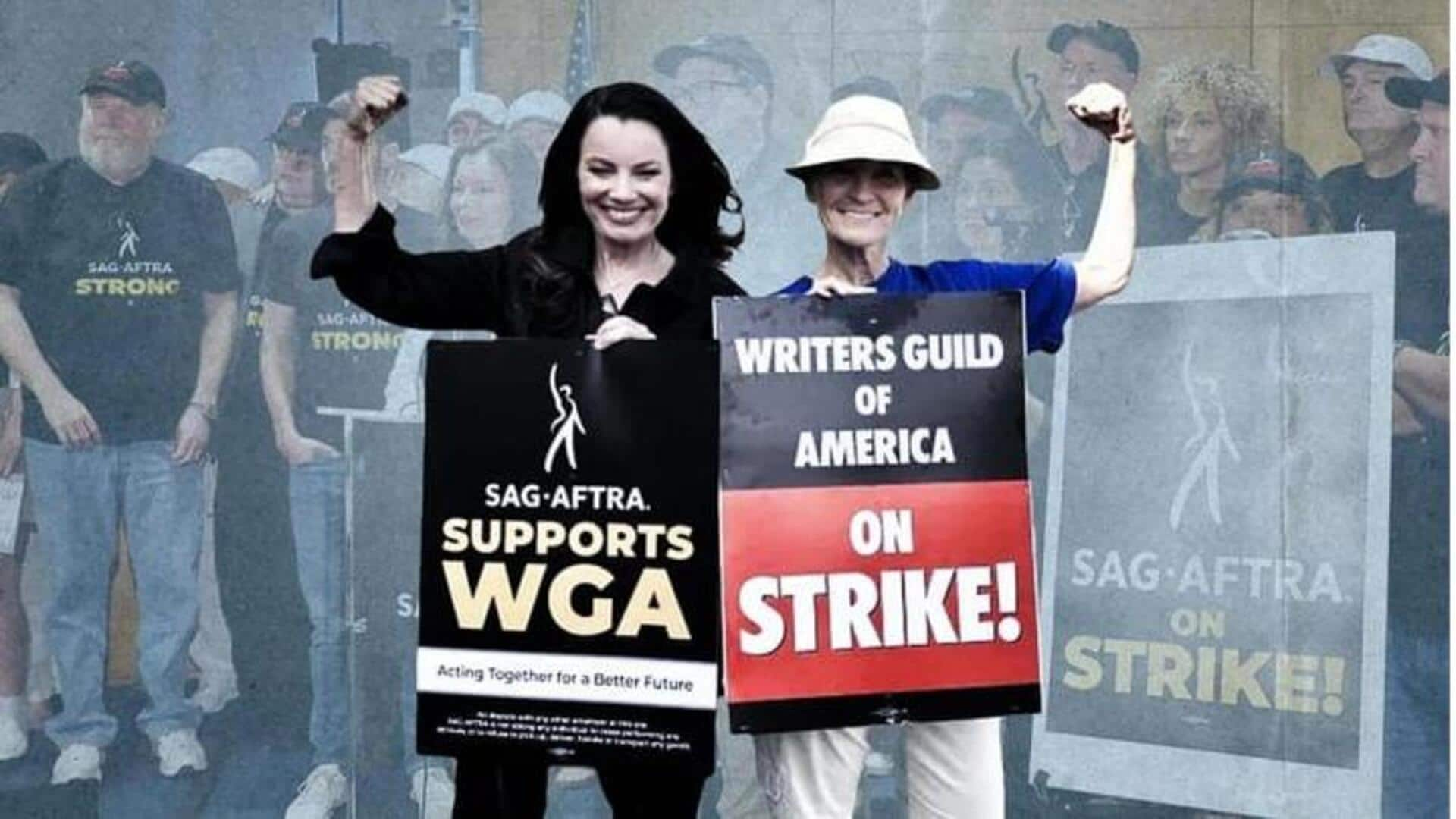
Hollywood's strike: Conversations between writers-top studios hint at improvement
What's the story
Hollywood's ongoing historic strike has brought the industry to a standstill, with writers and actors joining the picket lines over fair pay and the usage of AI, among other issues. On Wednesday, there seemed to be rare headway when the Writers Guild of America (WGA) held discussions with four top studios in Hollywood. Reportedly, the talks have been encouraging and will continue on Thursday.
Conversations so far
These are the top four studios leading the talks
On Wednesday, the Writers Guild of America met with David Zaslav, the chief of Warner Bros. Discovery, Bob Iger, the chief of Disney, Ted Sarandos, who leads Netflix, and Donna Langley, who spearheads NBC Universal. Though neither side reflected deeply upon the discussion, they issued a rare joint statement that said, "The WGA and AMPTP met for bargaining today and will meet again tomorrow."
Headway
This is the first time two sides have made progress
Notably, a source told CNN that the talk left attendees "encouraged." This is important because ever since the strikes began, the two sides have been at loggerheads with each other, with no progress made on the writers' issues. Considering the conversations have spilled over to Day 2, it can be expected that the two parties might be finally reaching the same page.
Zaslav's comments
Earlier, Zaslav had hinted at negotiation efforts
Earlier this month, Zaslav had stressed the importance of ending the strike. He had said, "We're a content company. We're a storytelling company. And we need to do everything we can to get people back to work. People need to be fairly compensated. We have to focus as an industry, and we are trying to get this resolved in a way that's fair."
Issues
What are the issues writers are fighting for?
Over 11,000 film and TV writers have been striking since May 2, alleging that the revenue earned by studios in the contemporary streaming era doesn't match their income. Now, the WGA wants studios to mandatorily employ a certain number of writers for a specific period of time. It is also batting for the writers to be paid throughout preproduction, production, and postproduction.